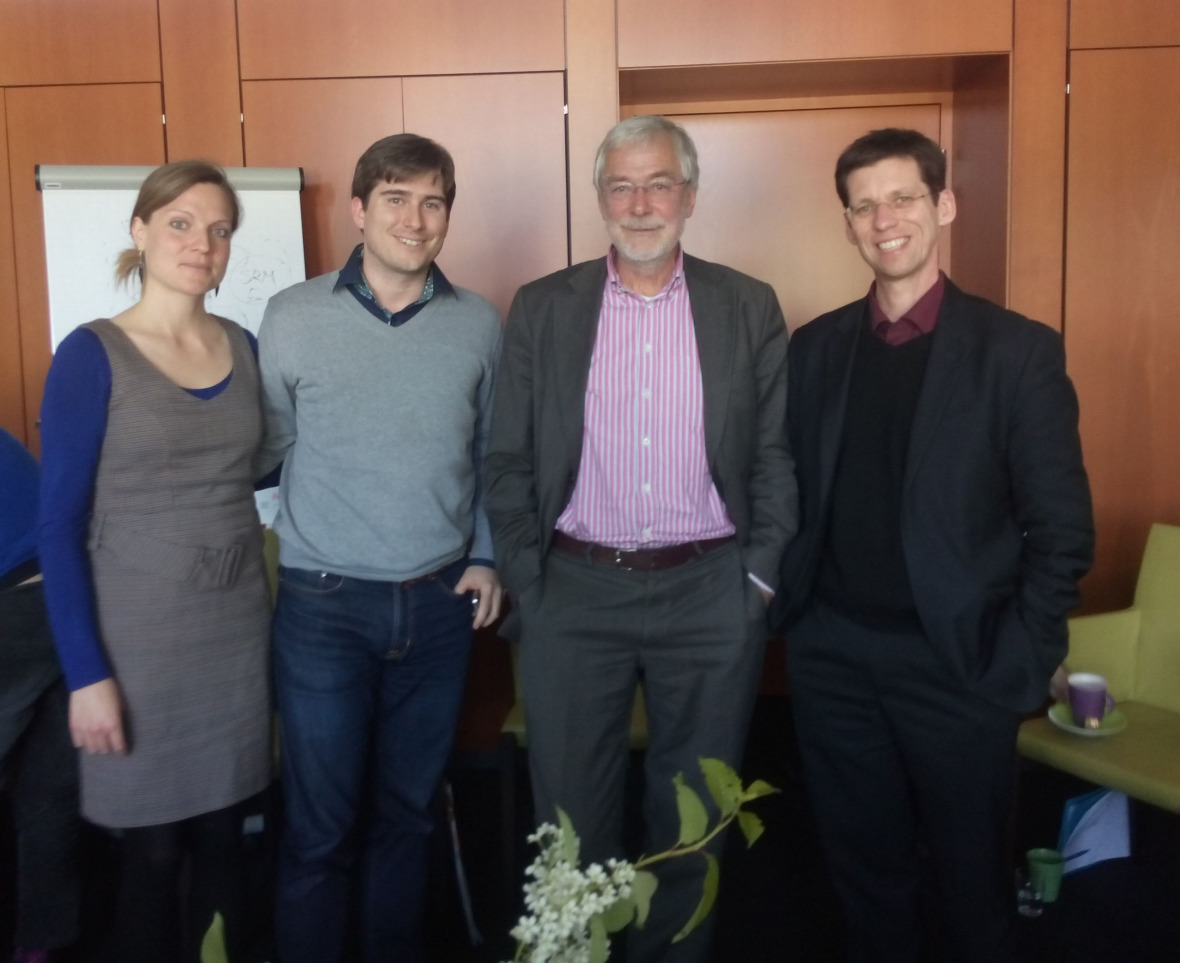Mental Dispositions and Sustainability: An Interview with Gerald Hüther
09.06.2016

Professor Gerald Hüther was recently invited to speak at the IASS. Hüther is a neuroscientist and biologist at the University of Göttingen and the author of a number of best-selling works of popular science on brain research and the broad implications of its findings for society. In his lecture and subsequent discussions with the audience, Hüther talked about mental dispositions, their development and their potential role in promoting sustainable practices and contributing to the emergence of a culture of cooperation and co-creation. Hüther’s lecture was staged in connection with the IASS project A Mindset for the Anthropocene (AMA) and was part of a series of activities undertaken at the IASS to facilitate an exchange of ideas with experts on psychology, religion, and spirituality in order to explore their perspectives and potential contribution to a transformation towards sustainability.

Could you explain to us the connection between the consumption of natural resources and the culture of relationships within human society?
Gerald Hüther: It appears that all living systems follow a fundamental principle of self-organisation in that they strive to achieve a state in which the relationships between their members are organised in such a way that the amount of energy necessary to maintain the system’s stability is reduced to a minimum. The less efficiently the relationships of its constituents are organised, the more energy a living system will consume. This suggests that efforts to foster sustainability – rather than focussing on the necessity of achieving savings in energy and resource consumption as their entry point – should be directed towards minimising the development of surrogate needs, which develop when an individual’s fundamental needs and desires remain unfulfilled. Doing this would call for the development of forms of social coexistence that enable people to lead happy lives. In the field of neurobiology this is referred to as “coherence”. The more widespread coherence becomes within a social system, the less energy is required to maintain its existence.
And what role do mental dispositions play in all this?
Gerald Hüther: It is a matter of how people behave towards one another. Our behaviour as a whole is shaped by the various dispositions that we develop in the course of our lives. These in turn are the products of our life experiences. What this means is that rather than attempting to change behaviour, we need to provide opportunities for people to develop different mental dispositions. And the only way to do that successfully is by inviting, encouraging, and inspiring people to explore opportunities to engage in different and better experiences – experiences of the self, of others, and of nature.
Viewed against this background, how could we achieve this? And what concrete steps could an institute like the IASS take in this area to contribute to support a societal transformation towards sustainability?
Gerald Hüther: I believe it is critical that we develop new approaches with the capacity to extend public awareness of sustainability and support the development of dispositions conducive to making sustainability transformations a reality. I have gained the impression that the IASS could pioneer a fundamental shift in global sustainability strategies by focussing on people – who consume more or less energy and resources from one day to the next – and by stressing the importance of critical issues, including the challenge of creating a society in which people are happier and more fulfilled. Because if we can do that, people will develop fewer surrogate needs and correspondingly consume fewer resources and less energy.
Translated from the German original available here
Header image: istock/RobertSchneider
